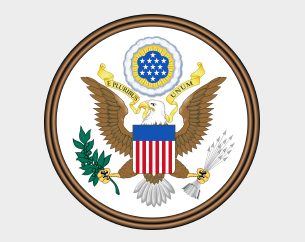
Update – January 8, 2024: The Supreme Court denied our Petition for Certiorari. The effect of this denial is that no relief will be provided to Plaintiffs who worked for Agencies whose funding expired as of the start of the shutdown. This is a very unfortunate result but no stone was left un-turned, and all possible efforts were made for a different outcome. The case remains open for those Plaintiffs who worked for Agencies which still had funding available as of the start of the shutdown, but still did not make timely payments. Discovery will be conducted to determine which Agencies are included in that category.
Update – August 8, 2023: A Petition for Certiorari has been filed with the Supreme Court. This filing asks the Supreme Court to be willing to hear all of the shutdown cases together. A ruling is expected late 2023 / early 2024.
Update – March 10, 2023: Unfortunately, the U.S. Court of Appeals for the Federal Circuit denied our request to re-hear the case en banc. Our case is one of more than one-dozen with identical claims. The attorneys for all of the cases are conducting discussions about a possible appeal to the Supreme Court.
UPDATE – November 30, 2022: A three-judge panel from the U.S. Court of Appeals for the Federal Circuit issued a decision which reversed our victory before the U.S. Court of Claims and held that there is no violation of the FLSA when the government does not pay its wages timely during a shutdown. The decision was 2-1 against us, and the judge who voted in our favor wrote a well-explained opinion explaining why he believed we should have won. We have asked the Federal Circuit to re-hear the case en banc, meaning that all of the judges on the court would have an opportunity to vote on the outcome of the case. A decision will likely take several months.
February 2021: The Court of Claims denied the Government’s Motion to Dismiss this case. The Government has appealed that decision to the U.S. Court of Appeals for the Federal Circuit. A decision is expected in 2022.
UPDATE – January 25, 2019: Congress voted to end the shutdown. This does not end the lawsuit. If you did not timely receive your pay for work performed during the shutdown you are still eligible to join the lawsuit and are still eligible to receive damages as a result of the government’s actions. Every single federal employee, regardless of union status, who is FLSA non-exempt and performed their duties during the shutdown is eligible to join this case.
In January 2019, in response to the partial Government shutdown, Snider & Associates, LLC, along with the National Federation of Federal Employees (NFFE), the International Association of Machinists and Aerospace Workers (IAMAW), the National Association of Government Employees (NAGE), the National Weather Service Employees Organization (NWSEO), the Professional Aviation Safety Specialists, AFL-CIO (PASS), and the Laborers’ International Union of North America (LiUNA), initiated a collective action lawsuit against the Federal Government for failure to pay excepted employees who are working through the government shutdown. However, every federal employee, regardless of union affiliation is eligible to join the lawsuit so long as they are designated as FLSA non-exempt and performed work during the shutdown.
As a result of the shutdown, Federal employees are not getting paid. Many of these employees have been, nonetheless, required to work. The Federal Government’s failure to timely pay these workers is a potential violation of both the overtime pay and minimum wage provisions of the Fair Labor Standards Act (FLSA). Though reports indicate that employees will be provided backpay when the shutdown ends, such payment does not and will not alleviate the liability of the Government. FLSA violations such as the ones alleged in the lawsuit carry with them additional penalties such as liquidated (double) damages. The backpay paid by the government after the shutdown ends will not include any additional compensation, and the only way to receive additional compensation is by joining the lawsuit.
If you would like to join the lawsuit and become a member of the class, please complete the form to your right.
Please continue to visit this page where all case filings and updates will be shared.
- January 11, 2019 – Complaint
- January 15, 2019 – First Amended Complaint
- February 13, 2019 – Defendant’s Motion to Consolidate
- March 11, 2019 – Response to Motion to Consolidate
- April 8, 2019 – Defendant’s Reply to Response to Motion to Consolidate
- May 3, 2019 – Defendant’s Motion to Dismiss
- July 5, 2019 – Plaintiffs’ Opposition to Motion to Dismiss
- November 26, 2019 – Order requesting Additional Briefing
- December 20, 2019 – Defendant’s Supplemental Brief
- February 21, 2020 – Response to Defendant’s Supplemental Brief
- April 3, 2020 – Defendant’s Motion for Leave to File Notice of Supplemental Authority (NTEU)
- April 17, 2020 – Plaintiffs’ Response to Motion for Leave (NTEU)
- April 22, 2020 – Defendant’s Reply to Plaintiffs’ Response (NTEU)
- April 27, 2020 – Order re: Defendant’s Motion for Leave (NTEU)
- April 30, 2020 – Defendant’s Motion for Leave to File Notice of Supplemental Authority (Maine Community)
- May 8, 2020 – Defendant’s Supplemental Brief (NTEU)
- May 14, 2020 – Plaintiffs’ Response to Motion for Leave (Maine Community)
- May 28, 2020 – Plaintiffs’ Response to Supplemental Brief (NTEU)
- June 2, 2020 – Defendant’s Reply to Plaintiffs’ Response (NTEU)
- June 9, 2020 – Order re: Defendant’s Motion for Leave (Maine Community)
- June 19, 2020 – Defendant’s Supplemental Brief (Maine Community)
- July 15, 2020 – Plaintiffs’ Response to Supplemental Brief (Maine Community)
